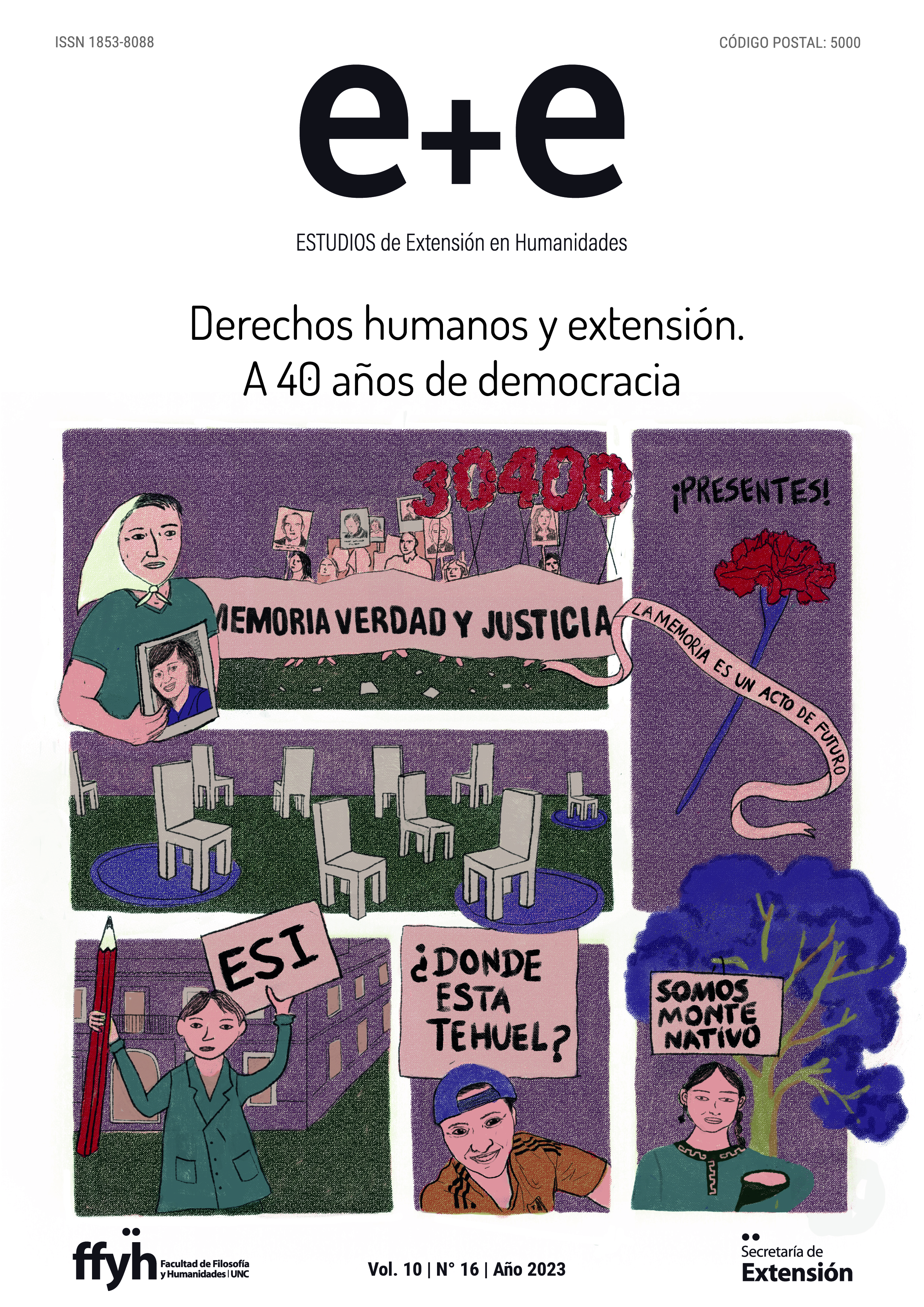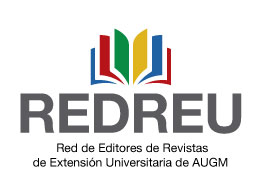Human rights and extension. 40 years of democracy
Abstract
The main objective of this dossier is to interweave different university extension experiences from a human rights perspective and to emphasize the commemoration of the 40th anniversary of the recovery of democracy in Argentina. These are 40 uninterrupted years of democracy after successive coups d'état and authoritarianisms that delimited political identities in the recent history of our country.
When this call for papers was opened for the first issue of 2023, we did not imagine that the democratic question would be the central issue of the debate in the context of the electoral situation. When this second issue was published, the signifiers of democracy and democracy were completely affected. As never before, denialist discourses and vindicators of State terror are on the rise; public debate is contaminated by hate speeches and proposals for social and economic regression threaten again and again the costly constructions of four decades of democracy. Bastions of democratic life -the policies of "Memory, truth and justice", the centrality of the intergenerational pact with the elderly, the care of the environment or the rights of indigenous communities, the importance of free education and public health and, in particular, the continuity of the public university as we know it- are questioned, vilified and a long collective history of construction of rights is called into question. We write this presentation knowing the results of the ballot of one of the most important presidential elections in national history.
The candidate of La Libertad Avanza, Javier Milei, will be the president of Argentina as of December 10 and, for the first time in history, a far-right political force will govern by popular mandate in Argentina. These are crucial moments for the present and the future, we are witnessing a change of era, we are being protagonists of a phenomenon that requires training, clarity and construction of common strategies to face the most devastating reality of the last decades.
This current political situation requires new programs, the consolidation of alliances and actions to guarantee fundamental human rights, such as the right to education, health, housing, the right to protest, the right to truth. In the midst of the chaos and collapse of the known structures, we have the social responsibility to reinvent ourselves without forgetting our history. This November 20 was the one year anniversary of the death of Hebe de Bonafini, a video circulated in social networks that remembers her in a rally. She said: "Even if they cover us up, we are here. Even if they put a thousand militiamen in front of us, we are here. Even if they don't like it, we are here. No matter how much they want to cover us up, we are here. And if they kill us, we will continue to be there". The public words of the president of the Mothers of Plaza de Mayo Association, one of the most important leaders of the Human Rights Movement, her denouncements and vehemence set the course in the protests against the policies of impunity and privatizations and in the marches against hunger and unemployment during the 1990s. She bequeathed to us the dignity of resistance in the face of injustice and humanity in the face of cruelty and against the silence of broad sectors of society in the midst of neoliberal policies.
One of the greatest teachings of the Mothers, Grandmothers, survivors, Relatives and Daughters is to activate actions and support just causes, even if the horror pretends otherwise. To be in the streets, to continue disputing meanings, to speak out against the silencers of popular struggles, to build ties and networks of solidarity are the only ways of resistance against the plundering and mercantilist state power. Now, in the same way that we assume that the conquests of rights are the consequence of social consensus, it is time to face the popular will regarding the new national representative and the new model chosen. What were the situations of inequality that led to this result? What did the lack of possibilities for upward social mobility mean for some sectors? Why did certain political proposals manage to channel social discontent and not others?
Downloads
Downloads
Published
Issue
Section
License

This work is licensed under a Creative Commons Attribution-NonCommercial-ShareAlike 4.0 International License.













